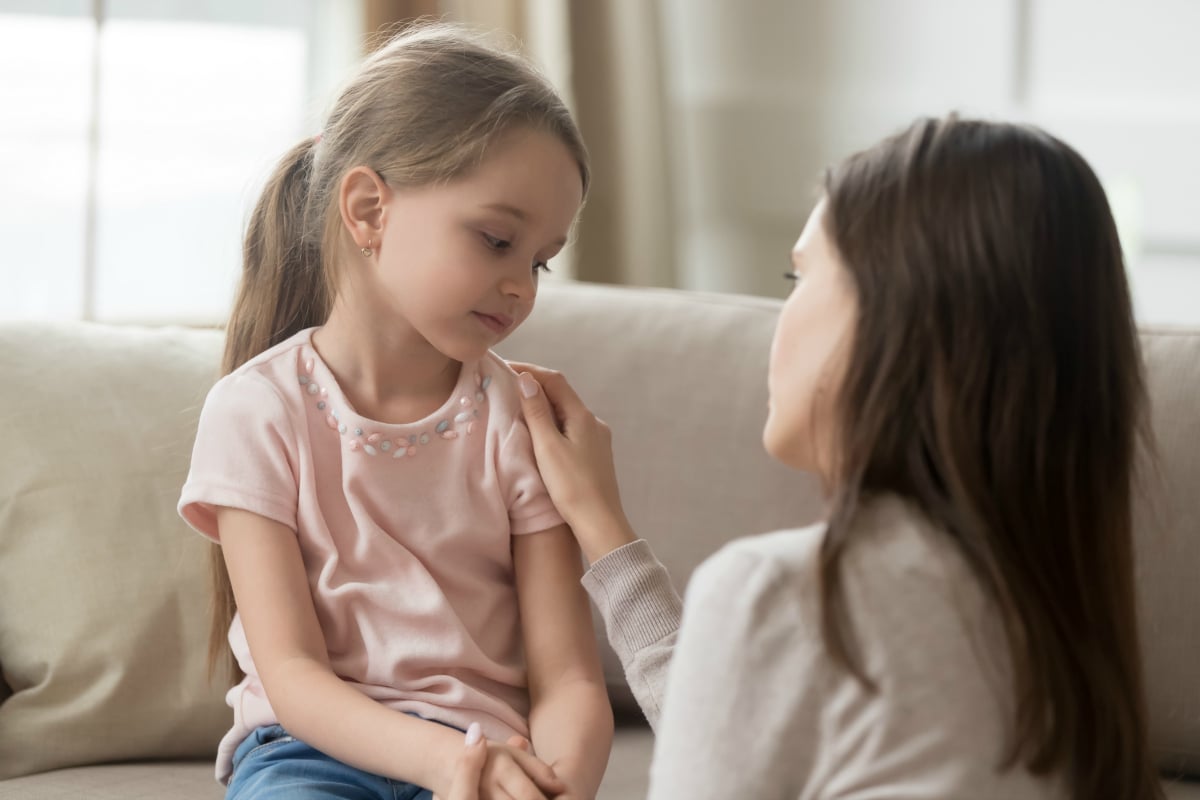
Telling your children you’re getting divorced is never going to be an easy thing to do. Because nobody wants to be responsible for that whole ‘messing your kids up for life’ thing we always hear about.
Mamamia’s newest podcast, The Split, is here to answer every burning question for you, because with one in three marriages ending in divorce, it’s something we need to talk about.
Child psychologist Dr Michael Carr-Gregg says the first thing you need to remember when telling your kids you’re separating is that this conversation will stay with them forever. So, no pressure then….
“It’s a loss experience and the truth is, it’s going to be a conversation that most of them will remember for the rest of their lives,” Dr Carr-Gregg explains.
Listen to host Mandy Nolan talk about ‘breaking up the family’ on The Split. Post continues.
Luckily, delivering the news – without causing negative lasting impacts – is something which can absolutely be done.
“It really depends on their developmental stage, their personality, their temperament and how resilient they are in general,” Dr Carr-Gregg says. “One size doesn’t fit all. I’ve seen kids breeze through it and just get on with their lives.”
So, how do you navigate this extremely tricky conversation once you know your relationship is over?
“You’ve got to make sure you tell them that they’re loved,” Dr Carr-Gregg advises.
“And make sure the whole family is present. I think it’s good to follow up with each child [if you have more than one child] separately too because often there’s one who might be a little bit more anxious than the other.”
